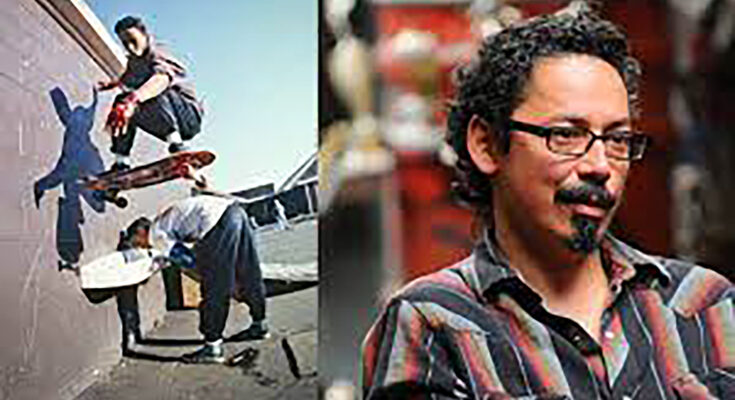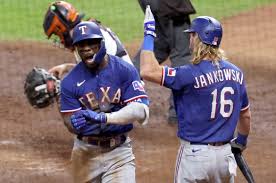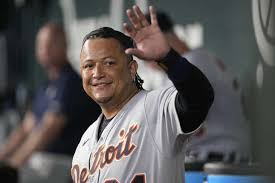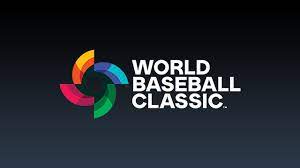Skateboarders are a rare breed, both athletically and in personal expression. Many are also musicians or get involved in the film industry. Their street style and vertical maneuvers can best be described as poetry in motion. The sport’s culture is often misunderstood along with the jargon. It’s also true that skaters can sometimes be defiant, especially when they find a secret spot to perform some “sick” new tricks, only to get busted by the cops. But one thing is clear. Throughout the sport’s 50 year history, no ethnic group has set the bar higher than Latinos.
These days of course, the skate industry has become a lot more mainstream and widely recognized. Now you have the X Games, the Olympics debut this year in Japan and lucrative endorsements. In the 1970’s-80’s, with the exception of Tony Hawk, it was a lot tougher to make a living. But that doesn’t mean the new generation of skaters don’t have the utmost respect for the veterans who set the stage for their success. So let’s take a look at the top 10 “old school” pros who first put skateboarding on the map.
Tony Alva
The face of the original Z-Boys, Alva was the lord of the pools in the 70’s that would be the blueprint for future skatepark construction projects. Tony was also the first pro bold enough to start his own company based solely on his reputation.
Chico Brenes
A Nicaraguan immigrant who came to the States in 1985 at the age of nine, Brenes turned pro 10 years later and headed up Team Chocolate, a spinoff company connected with World Industries. Then in 2009, he returned home to open up a skate shop in Managua. Along with baseball’s Dennis Martinez, Chico is a national sports hero there.
Steve Caballero
An original Bones Brigade member, Caballero has been loyal to the Powell Corporation his entire career. An extraordinary vert skater, the San Jose native once held the record for highest air achieved off a half pipe (11 feet), and invented a trick called the “frontside boardslide.” Now 56, Caballero plays in a punk rock band and enjoys painting.
Paulo Diaz
Originally from Guatemala, Paulo moved to Los Angeles and didn’t start skating until he was about 14, but he quickly earned a reputation as a street style guru. He became friends with several top pros in the early 1990’s like Guy Mariano, Rudy Johnson and Gabriel Rodriguez. As a result, it wasn’t unusual for him to organize a posse of 30 or 40 “homies” and hit all the favorite spots around Hollywood area. Diaz would bounce around among several sponsors, including Powell, Blind and finally with a company called Stereo before calling it quits and follow his passion for world travel, the arts and music.
Mark Gonzales
Probably the first true street style skater, Gonzales was a master at using hand rails and other props in addition to his fat ollies. His first notable sponsor was Vision, but Mark would later move on to form the Blind team. After that, he hooked on with ATM Click, Real and Deluxe. But like Paulo Diaz, it was clear that Gonzales had other areas of interest like painting and becoming an author. Now 52, Gonz continues to pursue those goals in New York City. The accomplishments he notched in skating however, were significant. In 2011, Mark was named the “Most Influential Skateboarder of All time” by Transworld Magazine.
Tommy Guerrero
While Caballero fooled around with street stunts, Guerrero was the first hard core skater in that category to ever emerge from the Bones Brigade, and he was turning heads in his teens. Tommy would later join my friend Jim Thiebaud, his Powell teammate, to form Real Skateboards. As I mentioned, Gonzales would later check in. But after making a huge impact on the skate scene, Guerrero would pivot to music where he would play the bass guitar, keyboard and drums for several different bands. For those talents, Tommy would be recognized by Rolling Stone Magazine, and in skateboarding by Transworld.
Jesse Martinez
Although a tremendous talent, Jesse grew up as a Venice Beach rat and always hung out with the wrong crowd. While still an amateur, Martinez did a lot of demos with the Powell team and always stole the show. He even had a couple of demo boards ready to market. But one time during an appearance the team made at my San Diego shop in 1986, Martinez was busted for smoking weed in back of the company van. The “captain” of the crew was freestyle expert Kevin Harris, and he was the “snitch” who used my phone to call George Powell with the bad news. I knew what he was about to do, but I wasn’t gonna bitch about it because my shop raked in about $4K that day. The Bones Brigade, including the mysterious Animal Chin and Johnny Rad, always maintained a squeaky clean image, so it was adios to Jesse. But he landed on his feet at Vision and later on with World Industries to enjoy an amazing career.
Stacy Peralta
Always the entrepreneur, Stacy made the leap from his surfer days and the old Z-Boys to partner up with George Powell to form what would become the sport’s most iconic brand, both financially and in prestige. George had the money and Stacy the credibility among his peers. Soon they would put together a team of heavyweights that would include (Tony) Hawk, (Steve) Caballero, Ray “Bones” Rodriguez, Rodney Mullen, Mike McGill, Lance Mountain and many others.
Ray “Bones” Rodriguez
A Bones Brigade original who had the deck with the ultimate skull and sword graphics, Rodriguez mastered backside airs and a variety of other vert tricks well before Tony Hawk expanded on Mike McGill’s revolutionary 540 degree “McTwist (not on the burger chain’s menu). Like others who would follow later, Rodriguez moved on to start his own punk rock band called “Manic Hispanic.” But Ray is still getting a few bucks off that rad deck that was later reissued by Powell.
Fausto Vitello
This guy could shred in his time, but is more famous for inventing Indy trucks (1978) and as the pioneer publisher of Thrasher Magazine (1981). Born in Buenos Aires, Fausto Vitello grew up a rebellious kid in San Francisco and invented the adjective “gnarly” that is associated with skateboarding to this day. A true sportsman who had his bouts with drug issues, Vitello died of an apparent heart attack at age 59 while riding his bike in the bay area community of Hillsborough.
Today, skateboarding is a multi-billion dollar business, and Latinos are still leading the pack as the trend-setters. One of the faces in the new era is Chaz Ortiz. Why? Because the 27 year old Chicago native has been winning competitions since he was 13, and gets tons of exposure hanging out with his boy Lil Wayne, the rapper. Another is Paul Rodriguez Jr., the son of the famous comedian (featured on this site a couple of years ago). With his music, acting and continued skateboard prominence, Paul’s net worth might soon surpass that of his pop. Others on the rise include Louie Lopez, a Mexican-Guatemalan immigrant. Pedro Barros is absolutely legit. Then there’s a strong Brazilian group led by Luan Oliveira. And 32 year old Guadalajara native Max Barrera needs some love because his credentials have always been impressive.
The cool thing about skateboarding though, is that guys who were top amateurs or pros who never got a decent break still skate in their 40’s and 50’s. The sport gets in your blood, you develop pride in your ability, and pulling off a trick after several tries is a tremendous rush. I have friends on the east coast who fit that scenario like Alex Corporan, a Dominican who still lives in New York City’s Washington Heights and works in marketing the sport. Then there’s Geo Estevez from Queens, who hung out with the Zoo York guys and is now an accomplished musician for Manhattan bands “Examine” and “None Above All.” Julian Vazquez, who started a board company called “Toy Box,” still spins Morrissey records at the barber shop he owns in San Diego.
I could go on and on, but here’s another point that’s clear. As the editor of this website, I have also moved on. I’ve been a journalist my entire life, but memories of my little skate shop will always be fresh in my mind, along with dozens of friends I didn’t mention. That’s what this unique sport has meant to me, and it will always be a part of my soul.




